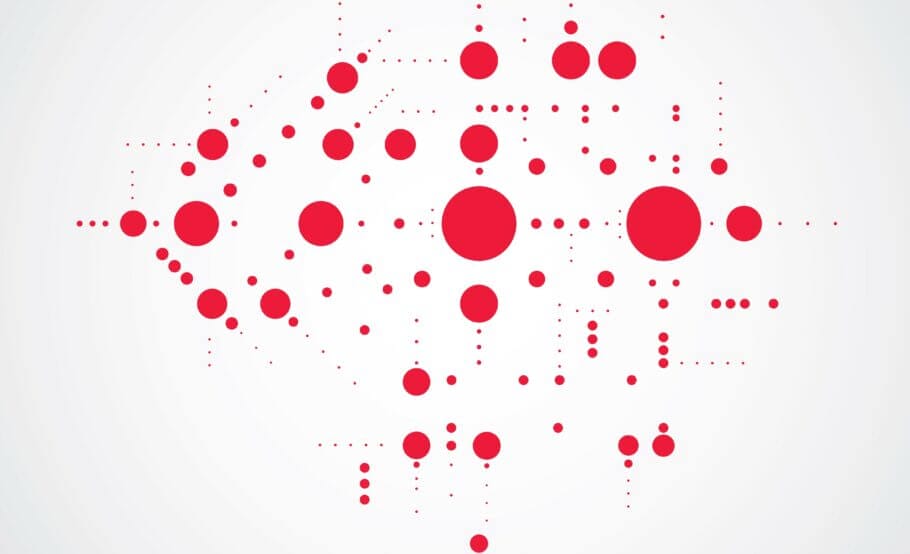For their successful, good life Information you really need: Government-funded publisher, awarded the Global Business Award as Publisher of the Year: Books, Shops, eCourses, data-driven AI-Services. Print and online publications as well as the latest technology go hand in hand - with over 20 years of experience, partners like this Federal Ministry of Education, customers like Samsung, DELL, Telekom or universities. behind it Simone Janson, German Top 10 blogger, referenced in ARD, FAZ, ZEIT, WELT, Wikipedia.
Disclosure & Copyright: Our articles are written and edited by humans, and in some cases like this, we use the assistance of artificial intelligence to optimize texts. Image material created as part of a free cooperation with Shutterstock.
Overcoming fear, shame and blockages: 8 methods to combat failure
By Atilla Vuran (More) • Professor Dr. Gunnar silk (More) • Simone Janson (More) • Last updated on October 05.03.2024, XNUMX • First published on 05.10.2017/XNUMX/XNUMX • So far 6376 readers, 1428 social media shares Likes & Reviews (5 / 5) • Read & write comments
Anxiety is usually called negative felt, but she has her reasons. Which Strategies help with anxiety blocks?

- Almost everyone is afraid
- How fear paralyzes us
- Fear is a learned reaction
- Where do our fears come from?
- To understand exam anxiety, shame and blockages
- 8 methods to overcome exam anxiety, shame and blockages
- The ABC model
- Do you have examples from your life?
- Fear is individual
- When do you encounter fears?
- Is fear now a hindrance?
- So what can you do to deal with fears?
- Conclusion: Fear is not insurmountable
- Top books on the subject
- Read text as PDF
- Advice on success, goal achievement or marketing
- Book eCourse on Demand
- Skate eBook as desired
Almost everyone is afraid
What do you associate with the word fear? Fear of the exam, fear of one Lecture, fear of looking bad, fear of failure? Have you ever been afraid to ask a question? Below are some Methods described for dealing with fear.
you would be for sure not the first person to be confronted with fears during the PhD. Almost everyone has fears, but hardly anyone talks about them. The higher in the hierarchy, the less.
How fear paralyzes us
The books on the subject (advertising)
What exactly is fear? Fear is, first of all, an unpleasant feeling that we feel and that occurs, for example, B. noticeable in wet hands, increasing breathing rate or faster heartbeat.
Fear, and this is important to know, affects one's own thoughts and ultimately even one's own self Behavior, We feel tense, more irritable and often unable to fall asleep. Some People retreat out of fear. Ways out of fear are sometimes sought by taking medication or alcohol.
Fear is a learned reaction
Fears can arise as a result of physical illnesses, Cardiac diseases, respiratory disease or thyroid hyperfunction. This chapter deals with so-called psychological anxieties, that is, those with no physical causes. We are not talking of anxieties where psychiatric help is necessary. PREETZ [1] distinguishes two central mechanisms of anxiety:
Fear as a learned reaction and fear as an expression of deeper emotional ones Problems. Do you have music that you associate with an emotionally positive moment? E.g. with your first great love? When you listen to this music, you immediately think of your positive feelings at that time and you feel transported back to the situation like in a time machine, don't you? Unfortunately, this principle also works with negative feelings such as fear. Fear becomes a reaction to external stimuli. It can happen that the external stimulus is no longer perceived, but only the fear as a result.
Where do our fears come from?
Discounts for your success (advertising)!
Where are the fears now? The psychologist DORIS WOLF [2] offers three explanations for the cause of fears:
- Fear is innate and not degradable,
- Anxiety is naturally triggered by certain stimuli, or
- People produce their fears themselves.
DORIS WOLF argues: Would 1. and anxiety would be innate and non-degradable, then it would be difficult to overcome one's fears and experience anxiety-free situations at one time or another. But this can be observed. 1. obviously does not apply. Now to 2. If fear were naturally triggered by certain stimuli, there should be no differences between different persons. In fact, there are massive differences in individual anxiety perception. So it's 2 too. disproved. Now there is 3 left. We produce our fears ourselves. Is not that something cynical? It may seem so at first glance, but it opens up great opportunities in dealing with fears. Fears are actually individual interpretations of situations.
To understand exam anxiety, shame and blockages
Exam anxiety, shame and blockages can seem insurmountable when they challenge our pursuit Success and hinder personal development. In academic, professional, or personal situations, the feeling of failure can be overwhelming. But do you know that it is ways to overcome these obstacles and reach your full potential.
Test anxiety is a natural reaction to Stress before or during an exam situation. It can manifest itself in various forms, from mild nerves to paralyzing anxiety that impairs performance. Shame often arises from feelings of failure or inadequacy, whether due to a poor evaluation or a goal not achieved. Blockages are mental obstacles that disrupt our thought process and make it difficult to reach our full potential.
8 methods to overcome exam anxiety, shame and blockages
But how do you deal with the problem? The following overview will help.
- Preparation and planning: Thorough preparation is the key to minimizing test anxiety. Create a study plan, break the material down into manageable chunks, and set realistic goals. Structured preparation can increase confidence in your knowledge and skills.
- Stress management: Use stress management techniques such as breathing exercises, meditation or progressive muscle relaxation. These methods can help reduce stress and calm the mind.
- Positive self-talk: Encourage yourself with positive and supportive thoughts. Instead of focusing on possible mistakes, focus on your strengths and past successes.
- Realistic expectations: Be realistic about your expectations. Nobody is perfect, and striving for perfection can lead to undue pressure. Accept mistakes as part of the learning process.
- Use resources: Don't be afraid to seek support. Teachers, tutors, mentors, or advisors can provide valuable advice, additional information, and perspective to help you overcome difficulties.
- Dealing with shame: Confront your feelings of shame by accepting and reflecting on them. Allow yourself to learn from mistakes and view them as opportunities for personal growth and development.
- Mindfulness and self-care: Practice mindfulness by paying attention to your needs and treating yourself with kindness and compassion. Make sure you get enough sleep, eat a healthy diet and exercise regularly.
- Professional support: If test anxiety, embarrassment or blockages lead to serious problems, don't be afraid to seek professional help. A psychologist, therapist, or coach can help you identify underlying causes and develop coping strategies.
The ABC model
Emotions and therefore also fear arise according to the so-called ABC model in three steps: A situation (A) is experienced by us. Now this situation is judged quickly on the basis of our experiences (B) and there is a reaction (C), here the fear.
An example:
- (A, Situation): Walk alone at night in the forest
- (B, Evaluation): Going into the forest at night is dangerous. My parents always told me that, and Grandma was always afraid.
- (C, reaction): They feel fear.
Do you have examples from your life?
What is exciting now is that it is for that Brain It doesn't matter whether you're just imagining a situation or actually experiencing it. The feelings are the same. thoughts and images in Head produce the same feelings as real situations experienced. Therefore, many athletes visualize z. B. on downhill skiing before the departure many times how they whiz down the ideal line and win the race.
What would you think of a downhill skiing champion who imagined many times himself going off the corner and losing the race? Crazy enough, when it comes to the situations that frighten them, people do just that: they imagine themselves failing over and over again; B. in the exam. The fear becomes stronger and stronger. It consolidates itself due to the repeated "experience". Although the frightening situation is unreal.
Fear is individual
Fear is the individual experience of a certain situation. One could say in a very polarizing way, “People produce their own fears” - depending on how they react to a situation. This does not mean that everyone is responsible for their own fear, that would be an unhelpful interpretation, but that fear is an individual experience of a situation.
Do you know people who practice extreme sports like bungee jumping or skydiving? What do these people say when asked if they are not afraid to practice these sports? "Of course I'm afraid - that's the kick!" This is an example of a positive experience of a situation that could also be experienced as fear. Therefore, many people do not do extreme sports.
When do you encounter fears?
In which situations can fears arise during an examination or doctorate? It would be conceivable:
- Fear of rejection in the application,
- Afraid of rejection by the Professor because of z. B. too low power,
- Fear of not being recognized in the team
- Fear of with the change z. B. moving to a new city,
- Fear of irrefutability of the publication of the dissertation,
- Fear of the audience at lectures,
- Fear of the language and culture abroad,
- Fear of the exam,
- Fear of coming too short,
- Fear of overburdening,
- Afraid of writing an application for research grants,
- Fear of a customer visit, ...
Is fear now a hindrance?
Not only, fear is also a vital protection function, which is first and foremost essential. The fear of crossing an expressway or the fear of the abyss on a hike on narrow ridges in the Alps helps us to survive.
However, our fears often inhibit our own further development. In everyday doctoral studies, fears are usually more of an inhibition of development than a protective function. Or to put it more succinctly: "Wherever your fear is, you have to go there because there is your development potential." We are - and this is important - not about fears in need of treatment, but about those that inhibit our personal development!
So what can you do to deal with fears?
You may first ask yourself whether the fear useful is. Example questions would be:
- Will the one you are afraid of actually and safely enter?
- How likely is it statistical?
- What would happen if the event occurred?
- How do other people deal with the event?
- What would you lose if you avoided the fearful situation?
- What is the worst of your fear?
- What could you focus on to get positive thoughts?
Conclusion: Fear is not insurmountable
Exam anxiety, shame and blockages are challenges, but they do not have to be insurmountable. With a Combination from preparation, Self care, realistic expectations and a willingness to accept support, you can overcome these obstacles and realize your potential.
Remember that failure is part of the learning process and can make you stronger. Be patient with yourself and trust that you are capable of overcoming these obstacles and finding your path to success.
Top books on the subject
Read text as PDF
Acquire this text as a PDF (only for own use without passing it on according to Terms and conditions): Please send us one after purchase eMail with the desired title supportberufebilder.de, we will then send the PDF to you immediately. You can also purchase text series.
4,99€Buy
Advice on success, goal achievement or marketing
You have Ask round to Career, Recruiting, personal development or increasing reach? Our AI consultant will help you for 5 euros a month – free for book buyers. We offer special ones for other topics IT services
5,00€ / per month Book
Book eCourse on Demand
Up to 30 lessons with 4 learning tasks each + final lesson as a PDF download. Please send us one after purchase eMail with the desired title supportberufebilder.de. Alternatively, we would be happy to put your course together for you or offer you a personal, regular one eMail-Course - all further information!
29,99€Buy
Skate eBook as desired
If our store does not offer you your desired topic: We will be happy to put together a book according to your wishes and deliver it in a format of yours Choice. Please sign us after purchase supportberufebilder.de
79,99€Buy
Here writes for you
 Atilla Vuran is co-founder and director of the Grundl Leadership Inhouse Academy. Vuran has been director of the Grundl Leadership Inhouse Academy, which he co-founded, as well as a conference speaker and leadership expert since 2003. In recent years he has accompanied doctoral students in many university institutes during their doctoral studies. All texts by Atilla Vuran.
Atilla Vuran is co-founder and director of the Grundl Leadership Inhouse Academy. Vuran has been director of the Grundl Leadership Inhouse Academy, which he co-founded, as well as a conference speaker and leadership expert since 2003. In recent years he has accompanied doctoral students in many university institutes during their doctoral studies. All texts by Atilla Vuran.
 Dr.Ing. Dipl.-Wirt. Ing. Gunnar H. silk is Professor for polymer engineering at Maastricht University; Seide researches and teaches at Maastricht University in the Netherlands, mainly on the subject of bio-based materials. He previously did his doctorate and habilitation at RWTH Aachen University and during this time he built up a research group with more than 30 doctoral candidates, which he supervised as a private lecturer. With this book, he would like to support doctoral candidates on their way to obtaining a doctorate. All texts from Professor Dr. Gunnar silk.
Dr.Ing. Dipl.-Wirt. Ing. Gunnar H. silk is Professor for polymer engineering at Maastricht University; Seide researches and teaches at Maastricht University in the Netherlands, mainly on the subject of bio-based materials. He previously did his doctorate and habilitation at RWTH Aachen University and during this time he built up a research group with more than 30 doctoral candidates, which he supervised as a private lecturer. With this book, he would like to support doctoral candidates on their way to obtaining a doctorate. All texts from Professor Dr. Gunnar silk.
 Simone Janson is publisher, Consultant and one of the 10 most important German bloggers Blogger Relevance Index. She is also head of the Institute's job pictures Yourweb, with which she donates money for sustainable projects. According to ZEIT owns her trademarked blog Best of HR – Berufebilder.de® to the most important blogs for careers, professions and the world of work. More about her im Career. All texts by Simone Janson.
Simone Janson is publisher, Consultant and one of the 10 most important German bloggers Blogger Relevance Index. She is also head of the Institute's job pictures Yourweb, with which she donates money for sustainable projects. According to ZEIT owns her trademarked blog Best of HR – Berufebilder.de® to the most important blogs for careers, professions and the world of work. More about her im Career. All texts by Simone Janson.
3 answers to “Overcoming fear, shame and blockages: 8 methods to combat failure”
-
Doing PhD is Failure - 2 / 3: Fears - How do you deal with it? from
Atilla Vuran & Prof.… via @berufebilder - Recommended contribution 4Qsd3OCoNh -
Doing PhD is Failure - 2 / 3: Fears - How do you deal with it? from
Atilla Vuran & Prof.… via @berufebilder - Recommended contribution CvkeuiSTGt -
Doing a doctorate means failing - 2/3: Fears - How do you deal with them? by Atilla Vuran & Prof. Dr. Gunnar silk ... - Recommended contribution U0HJ33Z8J8



















Post a Comment